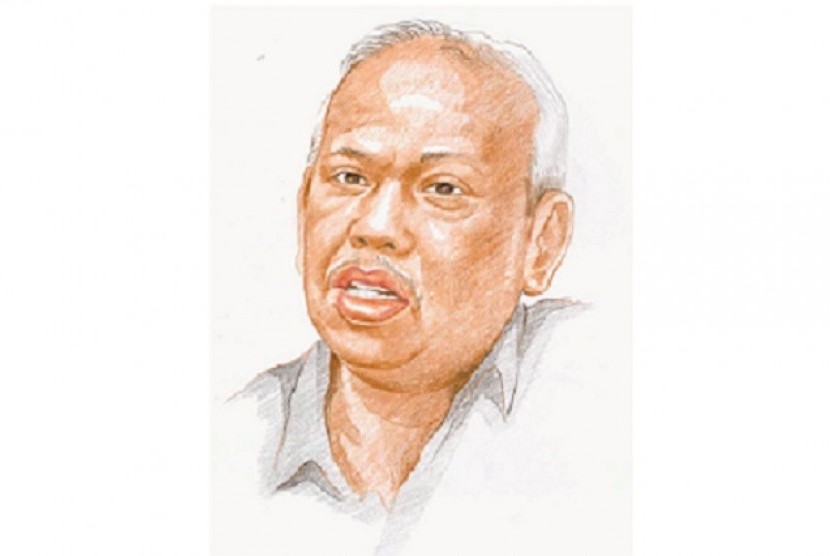REPUBLIKA.CO.ID, By: Azyumardi Azra
Pros and cons appeared in the community related to Circular issued by Chief of Police No.SE/06/X/2015 on the management of 'hate speech' in the public domain. There are seven forms of hate speech stated in the Circular: insult, libel, defamation, unpleasant acts, provocation, incitement, and spreading false news. All these actions have purpose or effect of discrimination, violence, disappearances of lives, and or social conflict.
In the Circular, the hate speech is aimed at inciting hatred to individuals or groups of people/communities in different aspects, such as ethnic, religious, religious teachings, faith or belief, race, inter-group, skin color, ethnicity, gender, disability, and sexual orientation.
The hate speech can be conveyed through a variety of media, among others: oration in campaign [politics], banners, social media networks, delivery of public opinion (demonstration), religious lectures, printed and electronic mass media, and pamphlets.
According to the Circular signed by Chief of Police, General Badrodin Haiti, on 8th October 2015, issue of hate speech has become national and international attention, in line with increasing concern for the protection of human rights. Therefore "by paying attention to the notion of hate speech above, if the acts of hate speech do not be handled effectively, efficiently, and in accordance with statutory provisions, then it would potentially cause discrimination, violence or disappearances of lives".
Facing the hate of speech, the police has set handling procedures. If preventive action has been carried out but the problem remains unresolved, the handling is going to be done through law enforcement, Law No.1/2008 on ITE, Law No.40/2008 on Elimination of Racial and Ethnic Discrimination, Law No.7/2012 on Social Conflict Management, and Police Regulation No.8/2013 on Technical Management of Social Conflict.
This resonance writer welcomed the Circular from the police chief. Although, publication of Circular was arguably too late; a few years ago in a seminar on 'Hate Speech' at Jakarta Police Headquarters to welcome the Bhayangkara Day, the writer suggested the need for the Law on Hate Speech Handling. However, the parties involved were less concerned about this issue till then the police took initiative to publish the police chief Circular.
Since the post-Suharto-era, euphoria of freedom and hate speech looked rampant in Indonesia. It was most evident in virtual world and social media. People easily found various forms of hate speech, especially related to SARA.
Hate speech was also often heard from the religious lectures. The preachers sometimes delivered hate speech by insulting other groups of religion and accused a person.
Those who gave hate speech in speeches and lectures had abused the freedom of religious lectures in Indonesia. This country is a 'paradise' because permission to speak is not required; whereas in almost all other Muslim countries, people are not allowed to give lectures if they do not have a license or a certificate from official institution.
Almost all countries in the world-including the most free country as the United States and Western European countries-have laws or other regulations concerning the handling of hate speech. The European Union, for example, published Anne Weber's 'Manual of Hate Speech' (2011). This manual aimed to provide guidance to government officials, experts, NGO activists and the public about the case of hate speech in relation to freedom of expression.
Freedom of expression and freedom of religion (Hurriyat al-ta`bir or Hurriyat al-ra'y) is guaranteed in the Universal Declaration of Human Rights (UDHR). Freedom of expression is a prerequisite of freedom of religion.
However, the problem is, should freedom of expression mean freedom that is wildly irresponsible and used for delivering hate speech? Therefore, the problem is how freedom of expression can be realized responsibly.
Freedom of expression and freedom of religion is not without limits. In freedom of expression and freedom of religion, there are rights of others not to be insulted with various forms of hate speech.
Many verses of the Quran also prohibits the spread of hatred. Islam gives rights to individuals to express everything as long as the speech was not in the form of defamation (blasphemy), slander, statements that cause damage, hostility, and disappearances lives. Islam encourages freedom of expression through wise and sensible statement, good advice and tawshiyah with patience, not anger.
Freedom of expression on religious freedom must be maintained with a sense of responsibility. Therefore, the use of freedom of expression to insult other religions is a violation of freedom of expression and freedom of religion itself.


